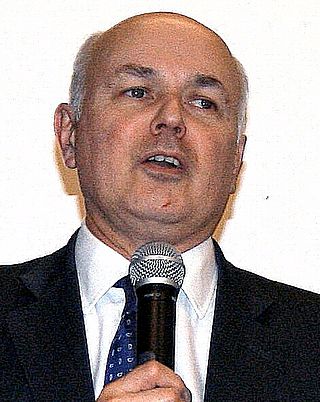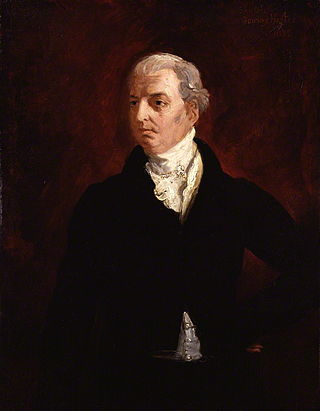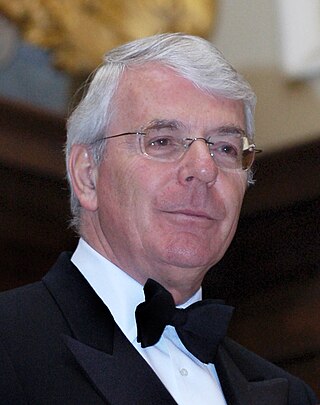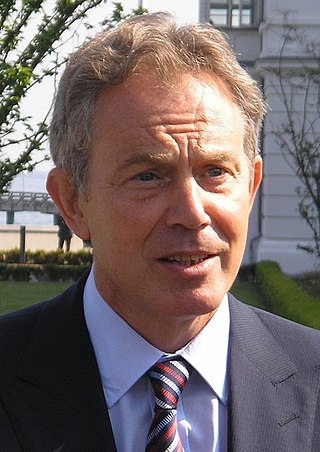
His Majesty's Treasury, occasionally referred to as the Exchequer, or more informally the Treasury, is a department of His Majesty's Government responsible for developing and executing the government's public finance policy and economic policy. The Treasury maintains the Online System for Central Accounting and Reporting (OSCAR), the replacement for the Combined Online Information System (COINS), which itemises departmental spending under thousands of category headings, and from which the Whole of Government Accounts (WGA) annual financial statements are produced.

The Chancellor of the Duchy of Lancaster is a ministerial office in the Government of the United Kingdom. Excluding the prime minister, the chancellor is the highest ranking minister in the Cabinet Office, immediately after the Prime Minister, and senior to the Minister for the Cabinet Office. The role includes as part of its duties the administration of the estates and rents of the Duchy of Lancaster.

The Minister for the Cabinet Office is a position in the Cabinet Office of the United Kingdom. The minister is responsible for the work and policies of the Cabinet Office, and since February 2022, reports to the Chancellor of the Duchy of Lancaster. The position is currently the third highest ranking minister in the Cabinet Office, after the Prime Minister and the Chancellor of the Duchy of Lancaster.

The Conservative government of the United Kingdom that began in 1957 and ended in 1964 consisted of three ministries: the first Macmillan ministry, second Macmillan ministry, and then the Douglas-Home ministry. They were respectively led by Harold Macmillan and Sir Alec Douglas-Home, who were appointed by Queen Elizabeth II.

The UK Shadow Cabinet was appointed by Conservative Party leader Iain Duncan Smith. Following his initial appointments in September 2001 Smith managed three reshuffles before his resignation as leader in November 2003.
The Gershon Efficiency Review was a review of efficiency in the UK public sector conducted in 2003-4 by Sir Peter Gershon.

The Liberal government of the United Kingdom of Great Britain and Ireland that began in 1905 and ended in 1915 consisted of two ministries: the first led by Henry Campbell-Bannerman and the final three by H. H. Asquith.

The Exchequer Secretary to the Treasury is a junior ministerial post in His Majesty's Treasury, ranked below the First Lord of the Treasury, the Chancellor of the Exchequer, the Chief Secretary to the Treasury, the Paymaster General and the Financial Secretary to the Treasury, and alongside the Economic Secretary to the Treasury. It ranks at Parliamentary Secretary level and is not a Cabinet office. Unlike the other posts of Secretary to the Treasury, it is only used occasionally, normally when the post of Paymaster General is allocated to a minister outside the Treasury.

The Canningites, led by George Canning and then the Viscount Goderich as First Lord of the Treasury, governed the United Kingdom of Great Britain and Ireland from 1827 until 1828.

Margaret Thatcher was Prime Minister of the United Kingdom from 4 May 1979 to 28 November 1990, during which time she led a Conservative majority government. She was the first woman to hold that office. During her premiership, Thatcher moved to liberalise the British economy through deregulation, privatisation, and the promotion of entrepreneurialism.

Margaret Thatcher was Prime Minister of the United Kingdom from 4 May 1979 to 28 November 1990, during which time she led a Conservative majority government. She was the first woman to hold that office. During her premiership, Thatcher moved to liberalise the British economy through deregulation, privatisation, and the promotion of entrepreneurialism.

Margaret Thatcher was Prime Minister of the United Kingdom from 4 May 1979 to 28 November 1990, during which time she led a Conservative majority government. She was the first woman to hold that office. During her premiership, Thatcher moved to liberalise the British economy through deregulation, privatisation, and the promotion of entrepreneurialism.

This is a list of members of the government of the United Kingdom in office under the leadership of Lord Liverpool from 1812 to 1827. He was appointed Prime Minister of the United Kingdom by the Prince Regent after the assassination of Spencer Perceval.

Stephen Paul Barclay is a British politician who has served as Secretary of State for Health and Social Care since October 2022 under Rishi Sunak, having previously held the position from July to September 2022 under Boris Johnson. He served as Secretary of State for Exiting the European Union from 2018 to 2020, Chief Secretary to the Treasury from 2020 to 2021, Minister for the Cabinet Office and Chancellor of the Duchy of Lancaster from 2021 to 2022, and Downing Street Chief of Staff from February to July 2022. A member of the Conservative Party, he has been Member of Parliament (MP) for North East Cambridgeshire since 2010.

The 1992 Dissolution Honours List was gazetted on 5 June 1992 following the advice of the Prime Minister, John Major.

The 1987 Dissolution Honours List was gazetted on 30 July 1987 following the advice of the Prime Minister, Margaret Thatcher.

The third Blair ministry lasted from May 2005 to June 2007. The election on 5 May 2005 saw Labour win a historic third successive term in power, though their majority now stood at 66 seats – compared to 167 four years earlier – and they failed to gain any new seats. Blair had already declared that the new term in parliament would be his last.

The minister of state for Brexit opportunities and government efficiency was a ministerial office in the Cabinet Office in the Government of the United Kingdom. This position was created by Prime Minister Boris Johnson in February 2020 as a renaming of Minister of State for the Treasury with new responsibilities. It was a joint office with HM Treasury and the Cabinet Office from 2020 to 2022. After Jacob Rees-Mogg was appointed in February 2022, the role was made a full member of the Cabinet; he was based solely at the Cabinet Office. Following Rees-Mogg's departure on 6 September 2022, to become Secretary of State for Business, Energy and Industrial Strategy under Liz Truss, no replacement was appointed and the role became dormant.
























